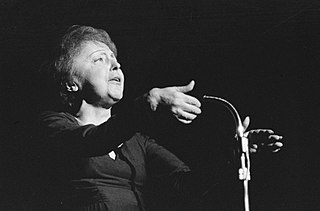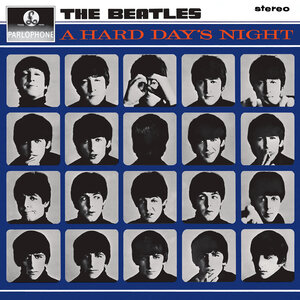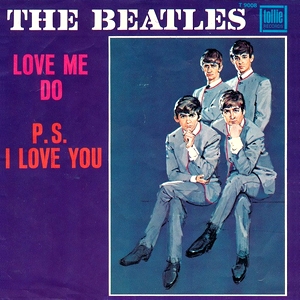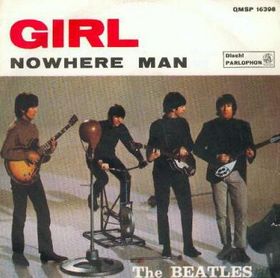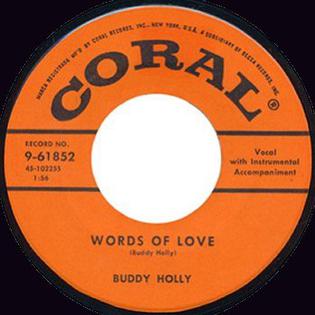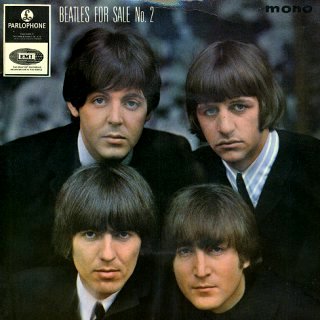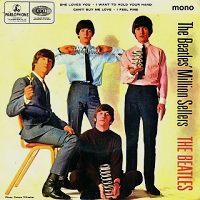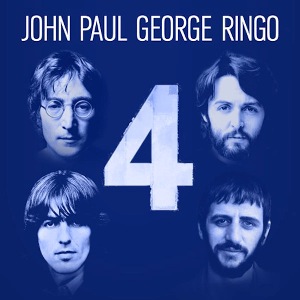This article needs additional citations for verification .(June 2016) (Learn how and when to remove this template message) |
| Yesterday | ||||
|---|---|---|---|---|
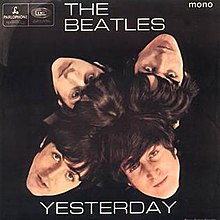 | ||||
| EP by the Beatles | ||||
| Released | 4 March 1966 | |||
| Recorded | 1965, EMI Studios, London | |||
| Length | 8:52 | |||
| Label | Parlophone | |||
| Producer | George Martin | |||
| The Beatles EP chronology | ||||
| ||||
| Professional ratings | |
|---|---|
| Review scores | |
| Source | Rating |
| Allmusic | |
Yesterday is an EP by the Beatles released on 4 March 1966 by Parlophone in the UK (catalogue number GEP 8948). It was also released in Portugal, Spain and Brazil (with another cover photo). [2] All four of the tracks also appeared on the Help! album.

An extended play record, often referred to as an EP, is a musical recording that contains more tracks than a single, but is usually unqualified as an album or LP. EPs generally contain a minimum of four tracks and maximum of six tracks, and are considered "less expensive and time-consuming" for an artist to produce than an album. An EP originally referred to specific types of vinyl records other than 78 rpm standard play (SP) and LP, but it is now applied to mid-length CDs and downloads as well.

The Beatles were an English rock band formed in Liverpool in 1960. With members John Lennon, Paul McCartney, George Harrison and Ringo Starr, they became regarded as the foremost and most influential music band in history. Rooted in skiffle, beat and 1950s rock and roll, the group were integral to pop music's evolution into an art form and to the development of the counterculture of the 1960s. They often incorporated classical elements, older pop forms and unconventional recording techniques in innovative ways, and later experimented with several musical styles ranging from pop ballads and Indian music to psychedelia and hard rock. As the members continued to draw influences from a variety of cultural sources, their musical and lyrical sophistication grew, and they were seen as an embodiment of the era's sociocultural movements.

Parlophone Records Limited is a German-British major record label founded in Germany in 1896 by the Carl Lindström Company as Parlophon. The British branch of the label was founded in 8 August 1923 as The Parlophone Co. Ltd., which developed a reputation in the 1920s as a jazz label. On 5 October 1926, the Columbia Graphophone Company acquired Parlophone's business, name, and release library, and merged with the Gramophone Company on 31 March 1931 to become Electric & Musical Industries Limited (EMI). George Martin joined Parlophone in 1950 as assistant label manager, taking over as manager in 1955. Martin produced and released a mix of product, including comedy recordings of The Goons, pianist Mrs Mills, and teen idol Adam Faith.
Contents
In the United States, however, none of the tracks appeared on the American Help! soundtrack. Instead, "You Like Me Too Much" appears on Beatles VI, "It's Only Love" appears on the US version of Rubber Soul, and "Yesterday," and "Act Naturally" appear on "Yesterday and Today". "Yesterday" and "Act Naturally" were also released as a single in the United States in September 1965.
The Beatles' 11th EP was released in mono only, and the cover photograph was taken by Robert Whitaker. Each Beatle took lead vocal on a song – McCartney on "Yesterday", Starr on "Act Naturally", Harrison on "You Like Me Too Much" and Lennon on "It's Only Love".
Robert Whitaker was a renowned British photographer, best known internationally for his many photographs of The Beatles, taken between 1964 and 1966, and for his photographs of the rock group Cream, which were used in the Martin Sharp-designed collage on the cover of their 1967 LP Disraeli Gears.
Yesterday entered the UK EP chart on 12 March 1966, and from 26 March spent six weeks at number one. In all it remained on the hit parade for 13 weeks.


